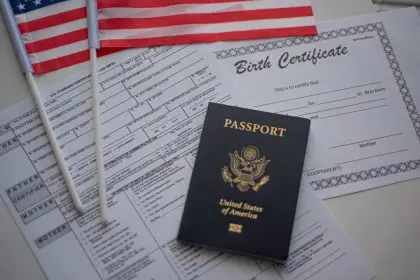Southern states grapple with Confederate legacy on civil rights day
In a stark reflection of America’s ongoing struggle with its historical narratives, Mississippi and Alabama continue to simultaneously observe Martin Luther King Jr. Day and Robert E. Lee Day, highlighting deep-seated tensions between civil rights progress and Confederate remembrance.
The parallel commemoration, occurring every third Monday in January, represents a complex intersection of historical memory and modern values, particularly as other Southern states have moved away from such practices. This persistence stands in marked contrast to the broader national trend of dismantling Confederate symbols and recognitions.
Legislative resistance
Despite mounting pressure for change, recent legislative efforts to separate the holidays have faced significant obstacles in both states. Mississippi’s attempts to establish an independent celebration for Dr. King have repeatedly stalled in the state legislature, with bills failing to gain traction in both 2023 and 2024. These setbacks underscore the deeply entrenched nature of the dual observance and the challenges facing reform advocates.
The situation in Alabama mirrors Mississippi’s resistance to change, where similar legislative initiatives have encountered steadfast opposition. Previous attempts to relocate Lee’s commemoration to alternative dates have failed to progress beyond initial committee discussions, reflecting a broader reluctance to alter long-standing historical observances.
Historical context and evolution
The roots of this controversial overlap trace back to the post-Civil War era, when Southern states established days honoring Confederate figures. The landscape shifted significantly in 1983 with the federal designation of Martin Luther King Jr. Day, prompting many states to reassess their holiday calendars. However, Mississippi and Alabama maintained their dual observance, creating an increasingly contentious juxtaposition of historical figures representing markedly different American narratives.
This persistence stands in stark contrast to the evolution seen in other Southern states. Virginia, once a stronghold of Confederate commemoration, has since abandoned its Lee Day observance. More recently, Louisiana took decisive action by removing both Lee Day and Confederate Memorial Day from its official holiday calendar, demonstrating a growing recognition of the need to confront and revise historical narratives.
Impact on communities
The continued coupling of these observances carries significant implications for community relations and social progress. The simultaneous recognition of a Confederate general alongside America’s foremost civil rights leader creates a complex dynamic that many view as diminishing the significance of Dr. King’s legacy and the broader civil rights movement.
Critics argue that maintaining this dual holiday structure perpetuates historical inequities and sends conflicting messages about state values. The practice particularly affects African American communities, who must navigate this official recognition of Confederate leadership while celebrating civil rights achievements.
Regional transformation
The broader South has witnessed significant transformation in its approach to Confederate remembrance. States like Louisiana have taken definitive steps to address these historical contradictions, demonstrating that change is possible even in regions deeply connected to Confederate history. These shifts reflect growing awareness of the need to reconcile historical narratives with contemporary values.
This regional evolution highlights the increasing isolation of Mississippi and Alabama in maintaining the dual holiday. Their stance represents a diminishing perspective in the modern South, where many states have chosen to address their Confederate legacy differently.
Looking forward
The ongoing debate over holiday observances in Mississippi and Alabama represents more than a scheduling conflict; it embodies fundamental questions about how states choose to remember and honor their past. As pressure for change continues to build, these states face increasing scrutiny over their commitment to maintaining this controversial practice.
The resolution of this issue may ultimately depend on shifting cultural attitudes and generational change. As younger lawmakers and citizens bring new perspectives to these historical questions, the possibility for reform remains open, though the path forward appears challenging.
This persistent holiday overlap serves as a powerful reminder of the unfinished work in addressing historical inequities and their modern manifestations. As other states have demonstrated, meaningful change requires both legislative action and broader societal willingness to confront uncomfortable aspects of regional history.
The debate over these holiday observances continues to evolve, reflecting broader national conversations about historical memory, racial justice, and the complex process of reconciling different historical narratives in contemporary American society. The resolution of this issue may ultimately signal larger shifts in how Southern states choose to commemorate their past while building more inclusive futures.
















